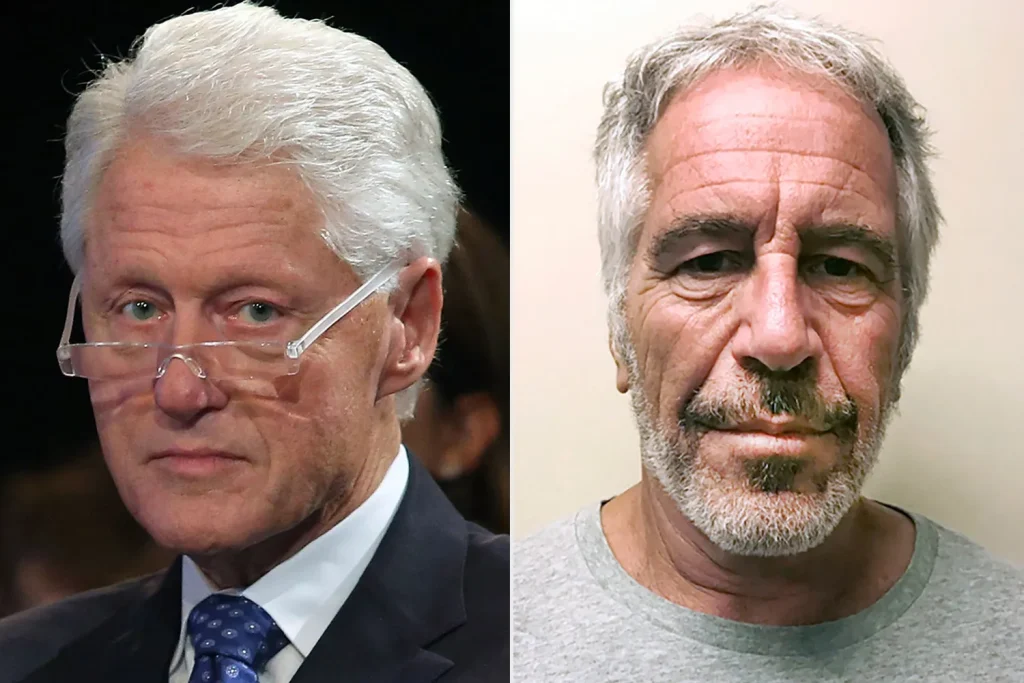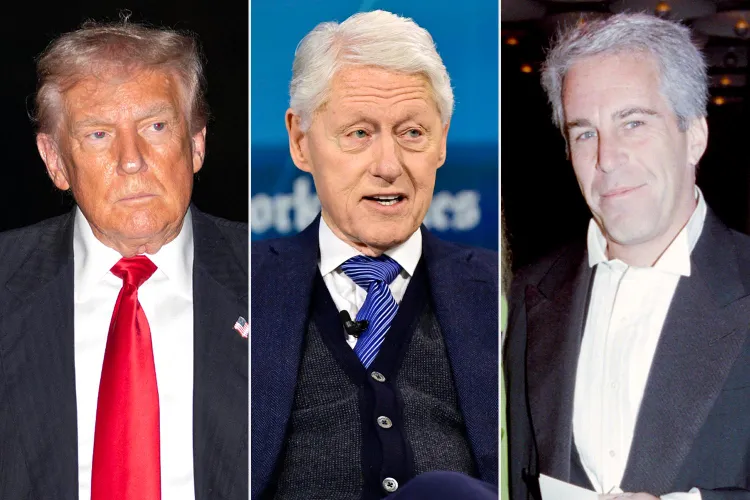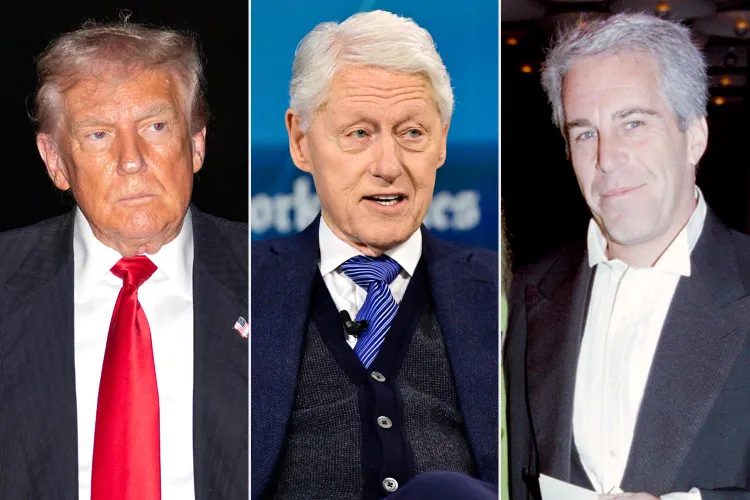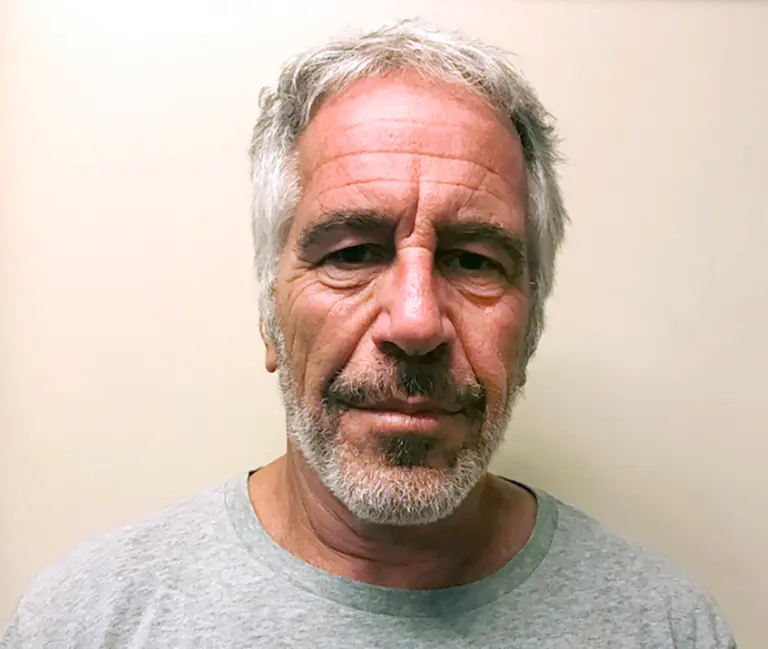Mark Epstein Says Sorry for Viral “Bubba” Email — Insists It Wasn’t About Bill Clinton Amid Explosive Epstein File Leaks
In a striking moment within the ongoing fallout from the massive Jeffrey Epstein document release, Mark Epstein has issued a direct apology to former President Bill Clinton after a private email between him and his late brother went viral and fueled a wave of speculation. At the center of the controversy is a single nickname — “Bubba” — and the speed at which the internet seized on it as a potential reference to Clinton, who has long been associated with that moniker. The apology, delivered during a televised interview on NewsNation, marks one of the few times Mark Epstein has directly addressed the public confusion surrounding his brother’s leaked communications.

The controversy began after previously sealed emails from 2018 were included in thousands of documents released by the U.S. House Committee on Oversight and Accountability. In one message, Mark wrote to Jeffrey, “Ask him if Putin has the photos of Trump blowing Bubba?” It was a cryptic line, informal in tone, and seemingly written as part of a joking exchange. But in the internet age, context often evaporates the moment a private message becomes public. Screenshots spread rapidly, landing across social media platforms, cable news segments, late-night comedy shows, and political commentary feeds within hours. For many observers, the nickname “Bubba” immediately evoked Bill Clinton, who has been called that by commentators and critics for decades.
As the rumor swelled online, Mark Epstein moved quickly to issue a clarification. Speaking in a composed but firm tone during his NewsNation appearance on November 18, he said, “I made a public statement that it was not any reference to Bill Clinton. I like Bill Clinton, and I’m sorry for him that he has to go through that.” His comments reflected both frustration and sympathy — a difficult position for someone who has spent years trying to separate himself from the darkest chapters of his brother’s life. He emphasized that the message was private, casual, and never meant to be taken seriously, let alone used to revive years-old accusations surrounding Clinton’s limited documented association with Epstein.
The Clinton camp responded swiftly. Spokesperson Angel Ureña reiterated the former president’s consistent position: that Clinton “did nothing and knew nothing” about Epstein’s crimes and has long condemned attempts to draw connections based on speculation or coincidence. Clinton has acknowledged traveling on Epstein’s plane in the early 2000s for philanthropic trips but has repeatedly denied any improper behavior, and no evidence has emerged linking him to Epstein’s criminal activity. With Mark Epstein’s apology now public, Clinton’s office has been pushing to move the story away from insinuation and back into the realm of documented fact rather than viral misinformation.

Still, the broader story is more layered than a mistaken nickname. The release of more than 20,000 emails and attachments from Epstein’s estate has reignited public fascination with the financier’s network and the many high-profile individuals who crossed paths with him over the years. The emails include everything from scheduling notes to rambling personal exchanges to baffling comments that appear intentionally cryptic. Among them, the “Bubba” email stood out not because of clarity but because of its ambiguity — and its proximity to two figures who have been lightning rods in American political culture.
Media outlets, including The Daily Beast and multiple entertainment news sites, quickly highlighted how the viral email had spawned a digital storm. Jon Stewart examined the phrase on The Daily Show, describing it as emblematic of how surreal the Epstein archives can be. Online, thousands of users dissected the line without context, creating memes, parodies, and speculative threads. What for Mark Epstein may have been a flippant remark between two brothers became, in the public arena, a catalyst for renewed partisan accusations, conspiracy theories, and opportunistic headlines. He expressed visible annoyance during the NewsNation interview, noting, “People got crazy” and reiterating that the speculation was misguided and unfair to Clinton.
The story also intersects with a second allegation Mark Epstein raised: that documents from his brother’s estate are being selectively redacted. He claimed that a facility in Winchester, Virginia, was “sanitizing” the files to remove Republican-linked names, citing what he described as a “pretty good source.” While no evidence has been presented to verify his claim, it has added a new thread to the public conversation — one that mixes legitimate questions about transparency with the charged atmosphere surrounding anything related to Epstein’s connections. Members of the Oversight Committee have denied any political interference in the document release, stating that all redactions followed protocol designed to protect ongoing investigations and individuals not implicated in criminal conduct.
Political pressure, however, has only escalated. Former President Donald Trump has demanded that Attorney General Pam Bondi investigate both Clinton and others named in the files, framing the issue as a matter of public accountability. Trump has maintained his own limited documented association with Epstein but has repeatedly denied involvement in or knowledge of his criminal activity. The release of Epstein’s emails and Mark’s apology has provided new fodder for political commentators on both ends of the spectrum, many of whom are eager to interpret the leaked materials in ways that support broader narratives.
Yet there is another perspective that has received less attention in the frenzy: the view of Epstein’s victims. Survivors and advocacy groups have emphasized that the political and media cycles often overshadow the central horror of Epstein’s crimes and the importance of justice for those he harmed. Many argue that attention should remain focused on the mechanisms that allowed Epstein to operate for decades rather than on the viral elements of email releases. From their standpoint, debates over “Bubba” obscure the real conversation about systemic failures in law enforcement, prosecution, and oversight.
Even so, the moment serves as a revealing case study in how archival materials collide with contemporary media culture. Private emails, once never meant for public consumption, hold immense power when taken out of context or interpreted through modern political anxieties. Nicknames that carried no special significance at the time of writing can, under the right circumstances, become symbols of something much larger. Mark Epstein’s apology acknowledges this reality. It recognizes that even unintended implications can damage reputations when the public imagination fills in the blanks left by incomplete information.
His refusal to reveal who “Bubba” actually was leaves the issue partially open. When pressed in the NewsNation interview, he said only, “This is a private email between Jeffrey and myself… It’s nobody’s business what we wrote.” For some, that answer invites curiosity. For others, it signals that the true meaning may be more mundane than the internet wants to believe. Without further explanation, the name remains a mystery that could either fade with time or resurface whenever Epstein’s files next hit the news cycle.
In the end, the apology may have been the only responsible course of action Mark Epstein could take. Whether or not that ends the speculation remains uncertain. But the moment underscores a simple truth: even a decade after Jeffrey Epstein’s crimes first made global headlines, his name continues to send shockwaves through politics, media, and culture. The document releases, investigations, lawsuits, and public curiosity show no sign of stopping. And within that landscape, a single line from a private email was enough to reroute the nation’s attention.
Sometimes the smallest detail becomes the loudest headline. Sometimes one casually used nickname forces a public correction. And sometimes, as Mark Epstein discovered this week, the past can pull someone into a narrative they never intended to enter. His apology may not answer every question, but it clarifies one thing decisively: Bill Clinton, he insists, was not “Bubba.” And for now, that is the closest the public will get to the truth behind the most viral line in the latest chapter of the Epstein files.



